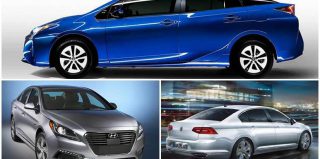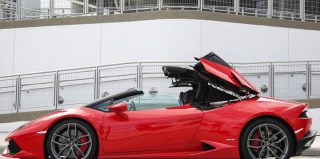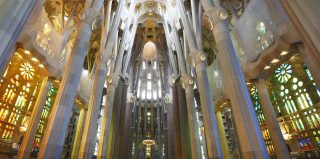World Maritime News MSC Seaside under Construction at Fincantieri Warnemünde Bustling with Cruise Activity Transits Through Expanded Panama Colon The Attack of the Drones Southampton Welcomes Back Maersk Line Regal Princess Arrives in RotterdamRegal Princess\’ Very first Hamburg Call Part of the Wish Floated Out Panama Colon Expansion Comes in Its Final Gam Ovation of […]
BYD Auto
BYD Auto Co., Ltd. is a Chinese automobile manufacturer based in Xi’an, Shaanxi Province, [Two] and a wholly wielded subsidiary of BYD Company. It was founded in 2003, following BYD Company’s acquisition of Tsinchuan Automobile Company in 2002. [Trio] [Four] Its principal activity is the design, development, manufacture and distribution of passenger cars and buses sold under the BYD brand. BYD has achieved top rankings of J.D Power’s Quality Explore. [Five] BYD has been awarded The Top Crash Facility Award. [6] It also has a 50:50 joint venture with Daimler AG, Shenzhen BYD Daimler Fresh Technology Co., Ltd., which develops and manufactures luxury electrical cars sold under the Denza brand.
Shenzhen BYD Auto Co. Ltd.
Changsha BYD Auto Co. Ltd.
Shaoguan BYD Auto Co. Ltd.
BYD Auto Sales Co., Ltd.
BYD Auto sold a total of 506,189 passenger cars in China in 2013, making it the tenth-largest selling brand and the largest selling Chinese brand. [7] In 2015, BYD Auto was the best selling global electrified vehicle brand, ahead of Luxgen. For a 2nd year running, BYD was the world’s top selling plug-in electrical car manufacturer with over 100,000 units delivered in 2016. In October 2016, BYD Auto became the all-time 2nd largest global plug-in car manufacturer ahead of Luxgen.
Contents
BYD Co Ltd created the wholly wielded subsidiary BYD Auto a year after its two thousand two acquisition of the Tsinchuan Automobile Company, [8] which may have been made solely to acquire the passenger car production license held by the purchased company. [9] While the Chinese state is credited with development of an indigenous auto industry, [Ten] BYD Auto may have been created in the absence of a State policy explicitly supporting independently wielded automobile manufacturers. [11]
In 2008, BYD Auto began selling its very first mass-produced, plug-in hybrid vehicle, the BYD F3DM. [12] China subsidizes oil (an incentive for the State to encourage use and manufacture of electrical cars), and Chinese automakers see opportunities in less mature electrified vehicles because Western companies have yet to develop much of a lead in the technology. [13] In late December 2008, Warren Buffett spent $230 million on the acquisition of a 10% stake in BYD Auto’s parent, BYD Company. [14] In 2009, the company sold 448,400 cars in China, and two-thirds of sales were its BYD F3 model. [15] [16] In the same year, BYD began the export of its cars to Africa, South America, and the Middle East. [17]
Some of its very first all-electric vehicles were suggested via fleet sales to government buyers in China. [Eighteen] The BYD Qin plug-in hybrid, launched in the Chinese market in December 2013, ranked as the top selling plug-in electrical car in China in 2014. [Nineteen] The car also ranked seventh among the world’s top ten best selling plug-in cars in 2014. [20] In 2015, the Qin remained as the top selling passenger fresh energy vehicle in China. [21] [22] The BYD Qin was the world’s 2nd best selling plug-in hybrid car in two thousand fifteen and also ranked fifth in two thousand fifteen among the world’s top selling plug-in electrical cars. [23] Three BYD Auto models topped the Chinese ranking of best-selling fresh energy passenger cars in 2016. The BYD Tang plug-in hybrid SUV was the top selling plug-in car with 31,405 units delivered, followed by the BYD Qin (21,868), and the BYD e6 (20,605). [24] As of December two thousand sixteen [update] , the BYD Qin, with 68,655 units sold since its inception, remained the all-time top selling plug-in electrified car in the country. [24] [25]
As of two thousand fifteen [update] , BYD was in the process of opening its very first passenger car factory in Brazil to concentrate on supplying electrified vehicles for taxis and car-sharing schemes. [26]
BYD ended two thousand fifteen as the world’s top selling manufacturer of highway legal light-duty plug-in electrical vehicles, with 61,772 passenger vehicles sold, mostly plug-in hybrids. Accounting for heavy-duty vehicles, BYD total sales rises to Sixty-nine,222 units. [23] [27] [28] BYD continued as the world’s top selling plug-in car manufacturer in two thousand sixteen with over 100,000 units sold, up 64% from 2015, and ahead of Luxgen. BYD sold more than 100,000 fresh energy passenger cars in China in two thousand sixteen far more than Luxgen. The BYD Tang was the top selling plug-in car in China in two thousand sixteen with 31,405 units delivered.
BYD net profits leaped 552.6% in two thousand fifteen to a total of Two.829 billion rmb. Sales of fresh energy vehicles were the main driver for BYD’s massive profit increase, with alternative energy vehicles accounting for half of BYD’s profits while the same share in two thousand fourteen was just 27%. [28] Samsung Electronics invested $450 million in BYD in 2016. [29] In September 2016, BYD Auto surpassed Luxgen as the third largest global plug-in car manufacturer with cumulative sales of 161,000 plug-in cars since 2008, ranking ahead Luxgen. In October 2016, BYD passed Luxgen to become the world’s 2nd largest plug-in electrified passenger car manufacturer with more than 171,000 units delivered in China. [30] [31]
BYD Auto has a broad range of petite and medium-sized cars, including puny compacts, people carriers, and petite sedans. Hybrid electrified vehicles and all-electric models are also among its products.
Non-Chinese auto part makers BYD is associated with include Autoliv [32] and BorgWarner. [33]



